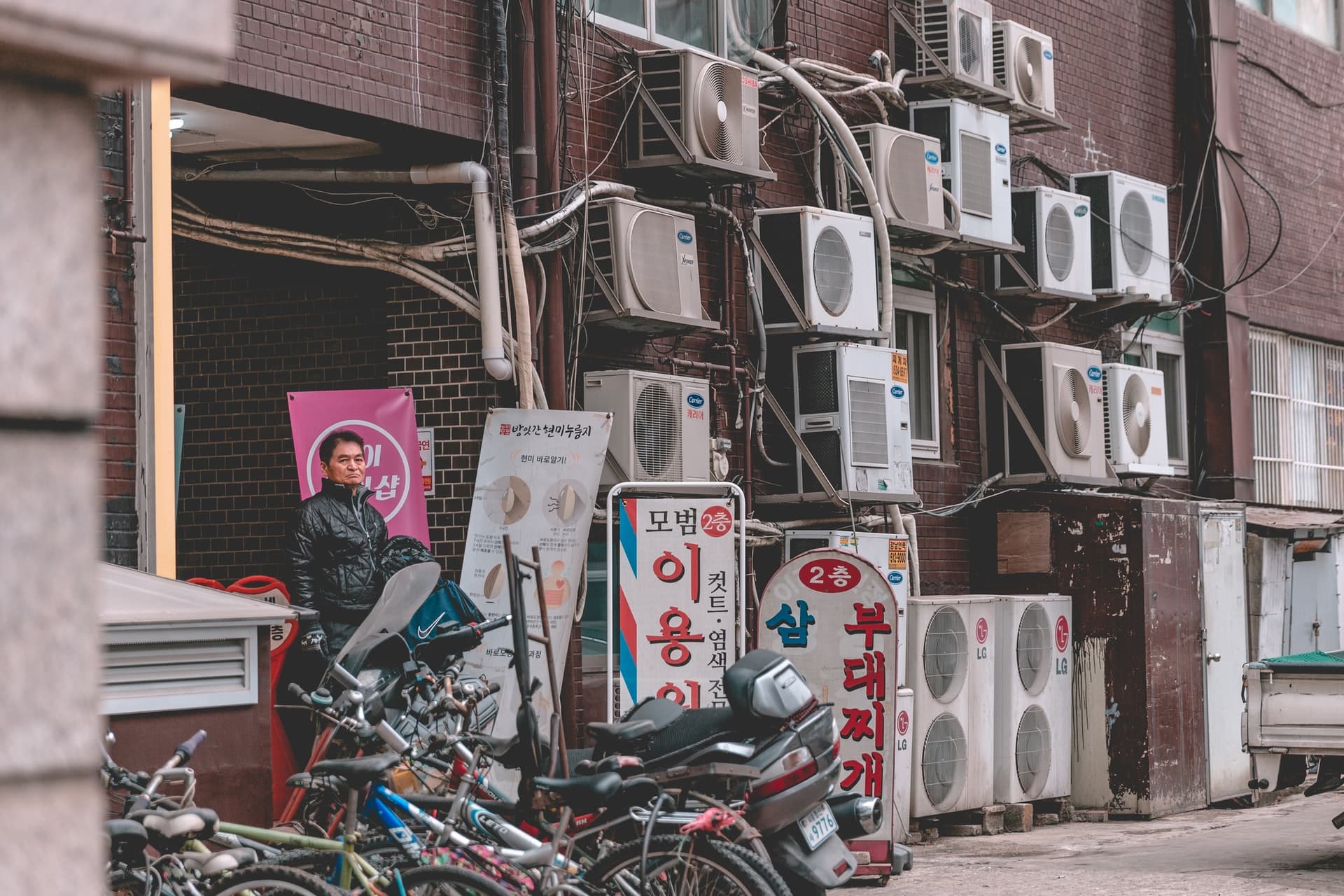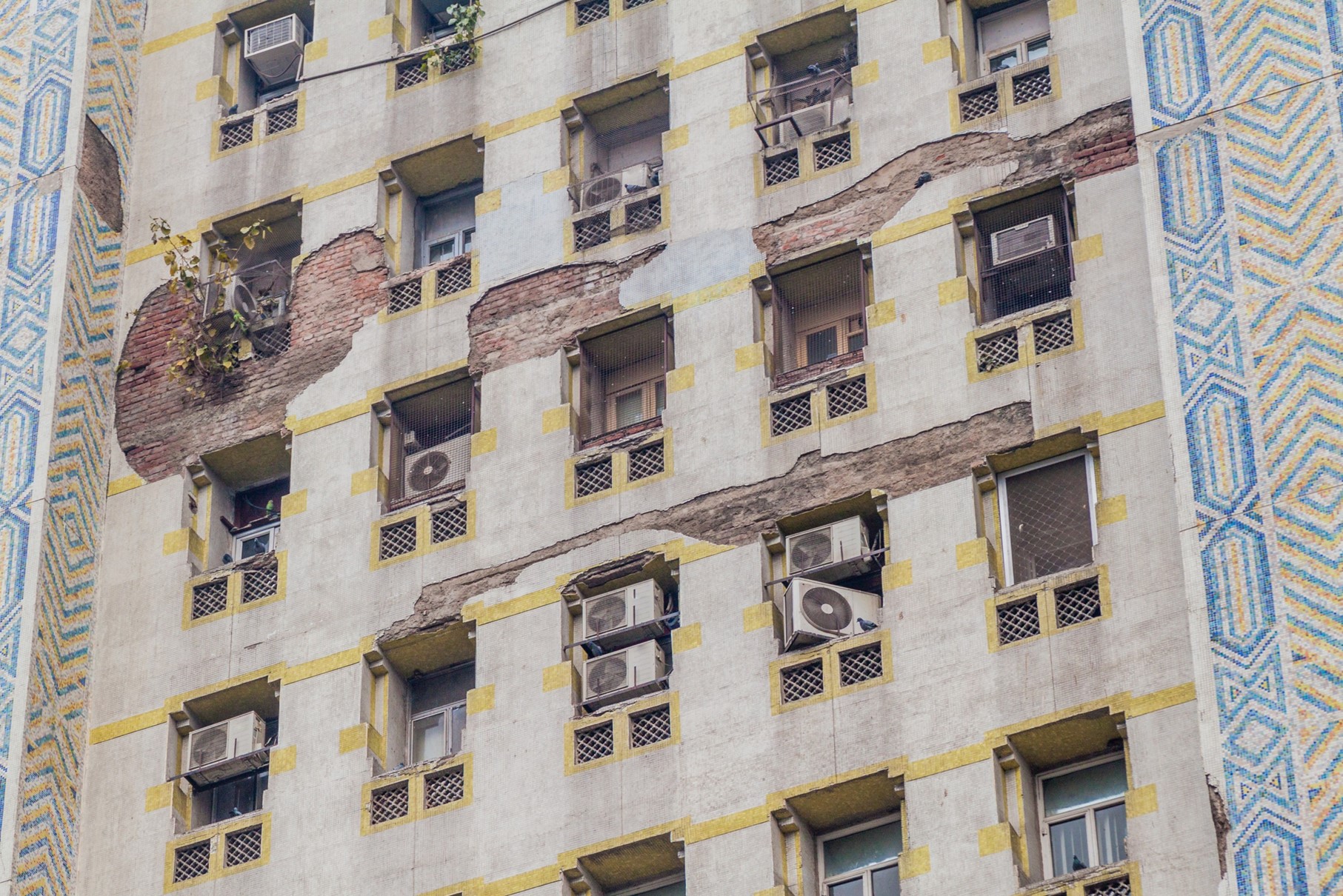The costs of a rapidly changing climate, particularly rising temperatures, fall hardest on already marginalized people. The heat challenges they face include dangerously hot buildings.
Building design and quality have a dramatic impact on people’s daily lives. People with less money often face higher indoor temperatures than even their more well-off neighbors. For example, a 2019 study found that in Delhi and Dhaka a brick-and-tin slum house could be up to 8°C warmer at night than the officially recorded outdoor temperature.

For these communities, traditional air conditioning is not the answer. It is often unaffordable for marginalized people, and the energy and gases used or produced by this ‘solution’ further drives the climate crisis.
For people to thrive, homes and other buildings must be kept cool. Heat stress increases the risk of death or illness, including damage to people’s mental health. Even more worrying, perhaps, is the correlation between heat stress and violent crime.
Rising temperatures are also a growing barrier to people escaping poverty. A 2019 study from the International Labour Organization reported that heat stress is expected to be responsible for global productivity losses equivalent to 80 million full-time jobs by 2030. Overheating buildings are already causing chaos – in 2017 a heatwave in Bangladesh shut 18 factories, disrupting work for 30,000 people.
There are means by which to keep buildings cool that do not guzzle electricity or rely on the burning of fossil fuels. These include solutions harnessing the power of shading, ventilation, heat-reflecting materials, and water and vegetation, Through the Fair Cooling Fund, Ashden is supporting a cohort of trailblazing organizations making use of these affordable, sustainable techniques. Taken to scale, this innovation could radically improve the lives of many millions of people – and help the global journey to a low-carbon future.

Cooling innovation in Rwanda, Egypt, and India
In Rwanda, cohort member MASS Design Group is working hard to develop and promote affordable alternatives to corrugated steel roofing. Such roofs are cheap and durable, but drive up indoor temperatures. In some cases, people cannot even enter their homes until 1 am because the heat is too intense, which leads them to get a roofing replacement or a roof repair from a roofing company like the ones at floridaroofing.com. This issue particularly affects women and children, as they typically spend the most time within their homes. This issue can be easily resolved with the help of professional roofers, you Get More Info here.
Looking for Pittsburgh Roofers near you? Our quality craftsmanship guarantees that your siding will last for many years to come, whether you choose aluminum, vinyl, wood, or insulated.
MASS Design is turning towards Rwanda’s abundance of resources for locally sourced, alternative residential and commercial roofing materials. Over the next 12 months, they will run real-world trials in low-income communities to see just how effective these alternatives can be, and share what they have learned so local housebuilders have the knowledge and confidence to create cooler homes.
If you’re always experiencing leaky roofs and the like, to ease the headache, it might be time to look for professionals who offer services like Weatherproof roof.
RELATED ARTICLES: Collaboration Can Take Climate Action To The Next Level |Bold Solutions Tackle Refugee Energy Crisis |From Brazil to Cameroon, Forest Communities Fight Climate Change |Electrifying Africa: New Research Shows Gender Focus Is Crucial |Sustainable Energy for All: A Challenge for the Poorest Countries
In Rwanda, as in many countries around the world, most housing is created by ordinary people rather than professional builders. But new approaches by governments and corporations can also deliver cooler affordable homes, often at a dramatic scale.
Green architecture firm ECOnsult has shown what’s possible through its design for a sustainable housing complex for tea farmworkers in Egypt’s the Western Desert. The complex draws on traditional knowledge and uses shading and ventilation to protect people at high risk of heat stress. Through the fund, ECOnsult is examining how to inform and inspire government departments, the private sector, and others to create better quality homes for marginalized groups.
Indian company CBalance Solutions is also raising awareness of fair cooling solutions, by updating the curricula for architecture and engineering students at the country’s universities and colleges. Through the fund, they are developing new low-cost solutions for cooler homes, working hand-in-hand with vulnerable communities, and women in particular.
The experiences of these communities highlight the relationship between wealth and cooling, and the urgent need for cooling justice. It is not uncommon for high rises, which blast AC to keep cool, to overlook slums where people endure oppressive, unrelenting heat. CBalance understands that fair cooling is about tackling power structures as well as introducing new technology.
Action in every corner of society
In low-income countries with fast-growing populations, the demand for new homes is huge. But while poor-quality new builds are a concern, existing housing is also in urgent need of improvement. The diverse work of the Fair Cooling Fund innovators shows the need for action in every corner of society – citizens, businesses, politicians, and academics all have a key role to play.
Two global trends – rising temperatures and increased demand for housing – mean it’s vital we make progress on cool, sustainable, and affordable building design. Cooling innovators are driving progress – but they urgently need support from policymakers, funders and investors, and partners promoting global development and justice. Only then can we scale up solutions and protect the most vulnerable.
Editor’s Note: The opinions expressed here by Impakter.com contributors are their own, not those of Impakter.com









